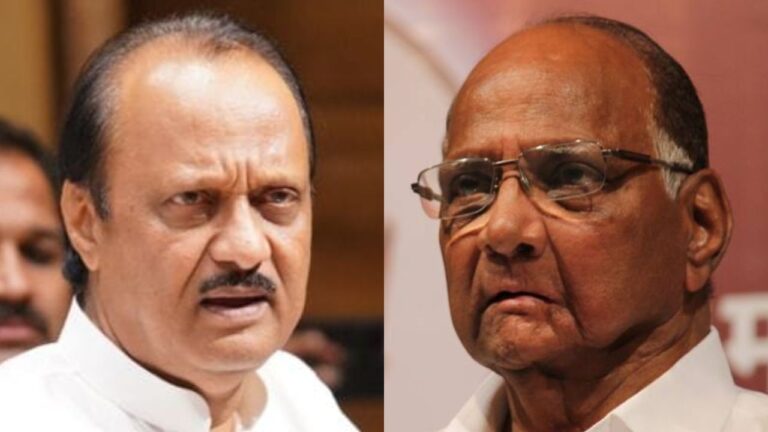News Desk, Kolkata : In a dramatic turn of events at the National Election Commission, Sharad Power has asserted his influence, challenging the legitimacy of Ajit Power’s faction within the Nationalist Congress Party (NCP). The commission, after prolonged hearings spanning over six months, has officially declared Sharad Power’s group as the authentic NCP.
This decision has significant repercussions, especially in the ongoing power struggle between Sharad and Ajit Power. The once-united NCP had splintered into two factions, with Sharad’s supporters on one side and Ajit’s on the other. The conflict, riddled with internal disputes, had reached its pinnacle at the National Election Commission.
The latest twist in the tale involves the renaming of the party’s organization, with Sharad Power’s faction now on the quest for a fresh identity in the political landscape. Following the internal rift, the commission has mandated the submission of three proposed names for the organization.
This pivotal decision not only strips Sharad Power’s group of the NCP name but also marks a symbolic shift in ownership of the party’s iconic symbol, the ‘clock.’ The clock, a longstanding emblem of the NCP, is now under the ownership and control of Ajit Power’s faction.
The implications of this decision extend beyond mere symbolism. The power dynamics within the NCP have been fundamentally altered, and Sharad Power’s group faces the challenge of rebranding and establishing a new identity in the lead-up to the upcoming parliamentary elections.
The discord within the NCP has cast a shadow on the democratic process, with critics arguing that the prolonged internal strife has weakened the party’s stance and could potentially harm the democratic fabric of the nation. Anil Deshmukh, a prominent figure in Sharad Power’s faction and a former minister in Maharashtra, expressed deep concern, stating, “What has transpired is extremely unfortunate. This decision has resulted in the murder of democracy.”
As the dust settles within the NCP, attention now turns towards the upcoming state legislative elections, where six seats are up for grabs. Sharad Power’s group finds itself not only in a quest for a new name and symbol but also in the challenging position of fielding candidates for the legislative elections.
In response to the Election Commission’s decision, Sharad Power’s faction has reacted strongly, condemning the ruling and characterizing it as a severe blow to democracy. Anil Deshmukh emphasized the gravity of the situation, stating, “The consequences of this decision are far-reaching, striking at the very core of our democratic principles.”
The ramifications of this internal strife are not confined to party politics; they resonate at a broader societal level. The political landscape in the region is poised for a transformation, with alliances shifting and new players emerging. The citizens, who are set to participate in the upcoming elections, now face a choice amidst the upheaval within the NCP.
As the NCP navigates through this turbulent period, the significance of the forthcoming parliamentary elections looms large. The power dynamics within the party will play a crucial role in shaping the political landscape, influencing voters’ decisions, and ultimately impacting the democratic process.
In this unfolding narrative of political intrigue and internal strife, one cannot ignore the broader implications for the nation. The resilience of democracy is being tested, and the citizens eagerly await the resolution of the power struggle within the NCP to cast their votes in the upcoming elections. The clock, once a symbol of unity, now stands as a stark reminder of the fractured state of one of the prominent political parties in the country.
DISCLAIMER
Our news media denounces any form of bias and disapproves of sensationalism. The disseminated news is entirely educational and aimed at social awareness. Our media maintains absolute impartiality, adhering solely to the purpose of education and social consciousness.


